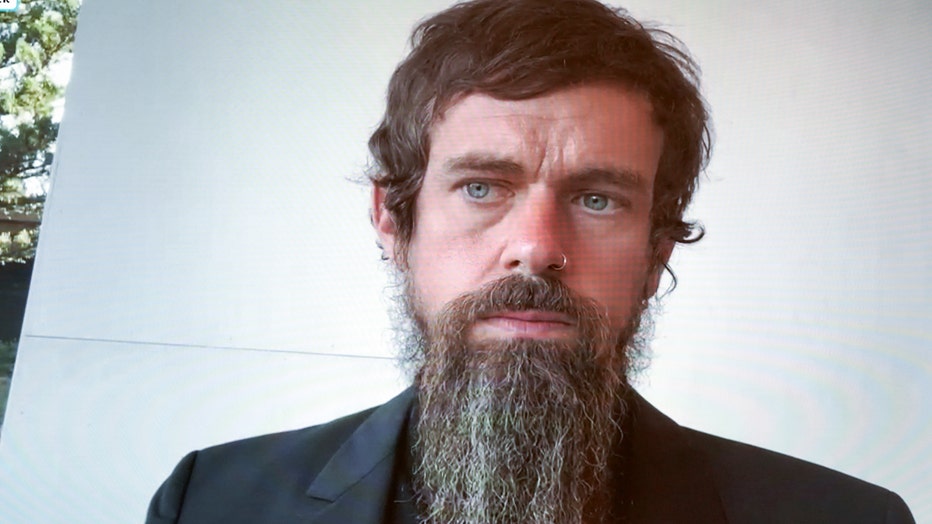Twitter co-founder Jack Dorsey steps down as CEO
NEW YORK - Twitter co-founder Jack Dorsey, who was the social platform's first CEO in 2007 until he was forced out the following year, then returned to the role in 2015, is once again out of the job — this time, he says, by choice.
It's the end of six tumultuous years at the social platform, during which Twitter has been plagued with slow growth, weathered an investor revolt, grappled with accusations of failure to deal with problems of hate speech, harassment and other harmful activity and finally took the extraordinary step of banning a sitting U.S. president for creating a danger to public safety during the Jan. 6 insurrection at the U.S. Capitol.
In a letter posted on his Twitter account, Dorsey said he was "really sad...yet really happy" about leaving the company and that it was his decision. Dorsey offered no specific reasons for his resignation beyond an abstract argument that Twitter, where he’s spent 16 years in various roles, should "break away from its founding and founders." Dependence on company founders, he wrote, is "severely limiting."
Twitter named its current chief technology officer, Parag Agrawal, as CEO effective Monday. Dorsey will remain on the board until his term expires in 2022. Agrawal joined Twitter in 2011 and has been CTO since 2017. By mid-afternoon, Twitter shares were down almost 2% at $46.38.
Dorsey defended the ban of former President Donald Trump, saying his tweets after the Capitol riot endangered public safety and created an "extraordinary and untenable circumstance" for the company. Trump sued Twitter, along with Facebook and YouTube, in July for alleged censorship.
"If he’s actually stepping away from Twitter this time, Dorsey leaves behind a mixed legacy," said Paul Barrett, deputy director of the NYU Stern Center for Business and Human Rights. "A platform that’s useful and potent for quick communication but one that’s been exploited by a range of bad actors, including former President Donald Trump, who did his best on Twitter to undermine democracy -- until Dorsey’s people finally had enough and shut him down."
Dorsey has faced several distractions as CEO, starting with the fact that he’s also founder and CEO of the payments company Square. Some big investors have openly questioned whether he could effectively lead both companies.
Last year, Twitter came to an agreement with two of those activist investors that kept Dorsey in the top job and gave a seat on the company board to Elliott Management Corp., which owned about 4% of Twitter’s stock, and another to Silver Lake.

WASHINGTON, DC - OCTOBER 28: Twitter CEO Jack Dorsey testifies remotely during a Senate Commerce, Science, and Transportation Committee hearing with big tech companies October 28, 2020 on Capitol Hill in Washington, DC. The committee is discussing re
Agrawal is a "‘safe’ pick who should be looked upon as favorably by investors," wrote CFRA Research analyst Angelo Zino, who noted that Elliott had pressured Dorsey to step down. Elliott released a statement Monday saying Agrawal and Taylor were the "right leaders for Twitter at this pivotal moment for the company."
While Twitter has high-profile users like politicians and celebrities and is a favorite of journalists, its user base lags far behind old rivals like Facebook and YouTube and newer ones like TikTok. It has just over 200 million daily active users, a common industry metric.
Dorsey expressed his confidence in Agrawal and new board chairman Bret Taylor, who is president and COO of the business software company Salesforce.
But Agrawal is far less well known than Dorsey. He previously worked at Microsoft, Yahoo and AT&T in research roles. At Twitter, he’s worked on machine learning, revenue and consumer engineering and helping with audience growth. An immigrant from India, he studied at Stanford and the Indian Institute of Technology, Bombay.
As CEO, he’ll have to step out from his largely technical background and deal with the social and political issues Twitter and social media are struggling with, including misinformation, abuse and effects on mental health.
RELATED: Twitter rolls out redesigned warning labels to combat misinformation

